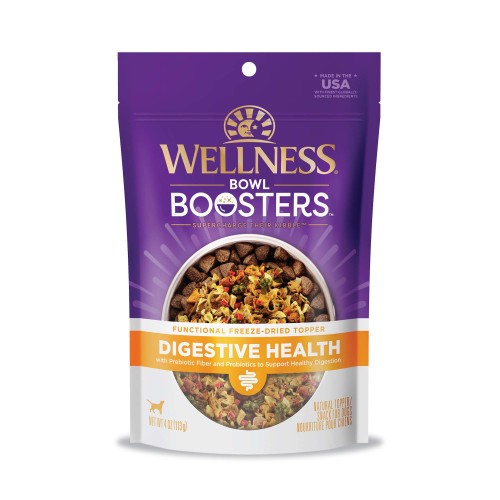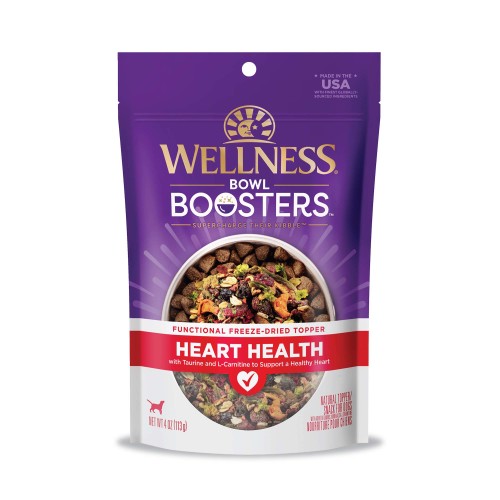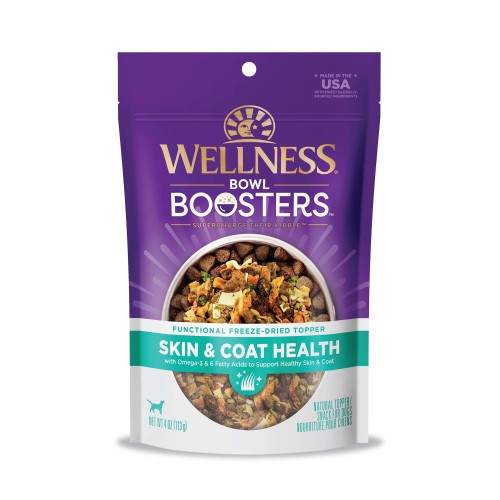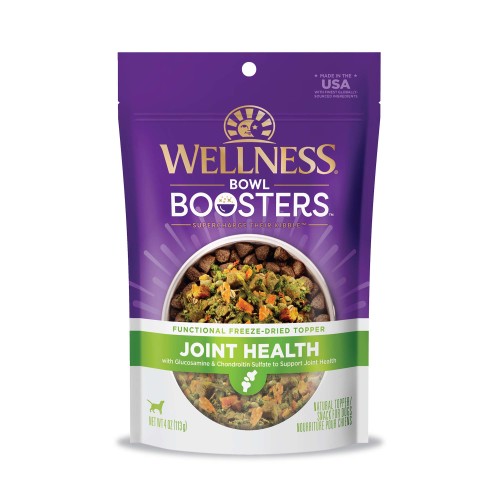May 26, 2022
The Best Dog Food For Dogs With Allergies
Dog Food For Allergies
If your dog suffers from food allergies or intolerances, you’re probably wondering, “What can I do for my itching and irritated fur friend?” We know, it’s ruff to watch your pup itching instead of enjoying a hearty game of fetch. Luckily, there are dog foods out there that are specifically designed to combat allergies.
As a pet parent, you’ll want to find food for dogs with allergies that don’t contain symptom-inducing ingredients while providing optimal nutrition. Symptoms of food allergies and intolerances vary from dog to dog, but the most common ones include:
- Itchiness
- Red, irritated skin
- Rashes
- Flatulence
- Vomiting
- Diarrhea
- Anaphylaxis (rare)
What Causes Food Allergies And Intolerances?
Food allergies come from the dog’s immune system overreacting to proteins and other molecules in the food, such as additives, coloring, and preservatives. Allergies can develop as a dog gets older, usually from prolonged exposure and contact. Common allergens include:
- Beef
- Dairy
- Wheat
- Chicken
- Corn
- Eggs
- Soy
Food intolerance is different from a food allergy in that the dog’s immune system isn’t reacting to the food. Instead, the digestive system cannot break down foods. For example, lactose intolerance is a food intolerance where humans don’t produce the necessary enzymes to digest lactose, a milk sugar. Dogs can have the same intolerances to proteins and carbohydrates in their food.
- Beef
- Dairy
- Wheat
- Egg
- Chicken
- Soy
While food intolerances are much more common than allergies, many of the symptoms and the causes overlap (notice the above two lists are pretty similar) and cause uncomfortable skin and gastrointestinal symptoms. Fortunately, picking the right food for your pet can go a long way toward helping them feel better.
The Best Dog Food For Allergies
For severe allergies that can cause anaphylaxis, a severe allergic reaction similar to what happens to humans with peanut allergies, your vet might put your pup on a prescription diet or an elimination diet. Unfortunately, these highly specialized foods for dogs with allergies are time-consuming and expensive and must be done under veterinarian supervision.
Luckily, for dogs with uncomfortable but not life-threatening symptoms, there are several more realistic and affordable allergy food for dogs that are available to pet parents.
- Plant-based dry dog food
- Limited-ingredient food
- Grain-free food
- Food that targets digestive health
Other Hypoallergenic Food For Dogs
Aside from plant-based dry food, pet parents have other dog food options. Let’s take a look at them.
Limited-ingredient food: As the name suggests, limited-ingredient dog food contains only a few main ingredients. These diets often contain novel protein – meat that comes from a less common source. For example, CORE Digestive Health Lamb uses lamb meat instead of beef, a common allergen.
Grain-free food: Sometimes, all it takes is getting rid of the gluten in your dog’s food to help your pup feel better. Grain-free dry dog food contains the protein your dog craves, and some options have novel proteins, further reducing the chances of an allergic reaction.
- Complete Health Grain Free Lamb & Lamb Meal
- Complete Health Grain Free Deboned Chicken & Chicken Meal
Digestive Health food: Maybe your pup doesn’t have allergies, but digesting certain foods certainly leads to gas and bloating. Digestive Health food contains gut-supporting probiotics that help things move through more smoothly. These friendly bacteria boost your pup’s gut microbiome and overall gut health.
An Itch-Free Future!
Whether you choose a plant-based dog food free from animal proteins, go grain-free, or try another type of food, the important thing to keep in mind is that changes in your pup’s symptoms might take several weeks to resolve. So, introduce new foods slowly and watch for any changes in your dog’s behavior and condition. The best dog food for allergies produces paw-sitive changes such as fewer rashes, a healthier coat, less gastrointestinal distress, and no more itchiness!





